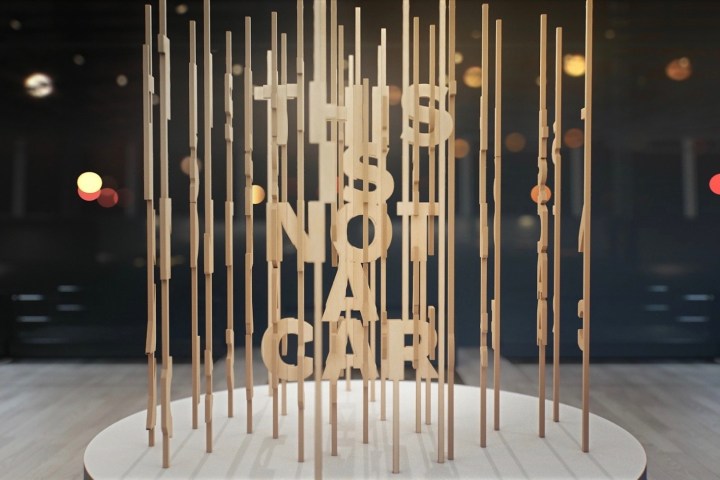
Volvo makes some pretty nice cars, but it isn’t bringing any of them to the 2018 Los Angeles Auto Show.
The Swedish automaker has declared that it will unveil “nothing” in L.A. Instead of rolling out the latest production model or a fanciful concept car, Volvo hopes to shift the focus from the vehicles themselves to mobility services like carsharing, in-car delivery, and subscription services. Volvo will still have a stand at the show, but the automaker promises there won’t be a single car in sight — just the message “This is not a car.”
“We thought the time was right to really focus on the big changes going on in our industry,” Mårten Levenstram, product strategy boss at Volvo Cars, told Digital Trends in a phone interview. The automaker plans to use the show as a forum to discuss its partnerships with tech companies and the different services that might spring from them, as well as specific technologies like autonomous driving, Levenstram said.
Volvo (along with General Motors) currently supports Amazon Key in-car delivery, in which packages are left in the trunks of cars while the owners are away. It’s pitched as a more convenient alternative to home delivery. Volvo will also lean heavily on Google for the development of its future infotainment systems, and will make features like Google Assistant available even to drivers who don’t have Android phones.
Google and Amazon are powerful brands in their own right, especially at a time when people are more likely to get emotionally invested in their phones than their cars. But Levenstram isn’t concerned that tech companies will overshadow Volvo in its various partnerships.
“I don’t think it’s either or. It’s a combination of Volvo and Amazon that makes it work,” Levenstram said, referencing the in-car delivery service. “We’re not competing with Amazon.” Volvo knows cars (and even once made one called Amazon), after all, and none of these planned services or tech features would exist without them.
“The car will still be important, but it will be used in different ways,” Levenstram said.
Volvo is also experimenting with different ways for customers to access its cars. It recently launched a sub-brand called M tasked with developing an app-based carsharing service, as well as Care by Volvo, a subscription service that lets customers put a new Volvo in their driveways for a flat monthly fee — without having to haggle at a dealership. Volvo expects the rise of self-driving cars, as demonstrated by its recent 360c concept, to further erode the traditional concept of ownership.
The choice of L.A. for Volvo’s car-free manifesto was not an accident. The show was officially rebranded as Automobility L.A. in 2016 and is now styled by organizers as both a tech conference and an auto show. Levenstram noted that the show gives Volvo access to the tech companies it partners with and hopes to partner with. Many of Volvo’s employees working in tech fields are also based in California, Levenstram said. He hopes getting all of these people together in one place will yield some valuable discussions about the direction of the auto industry.
“We think it’s important to discuss the changes, rather than just let them happen,” he said.


